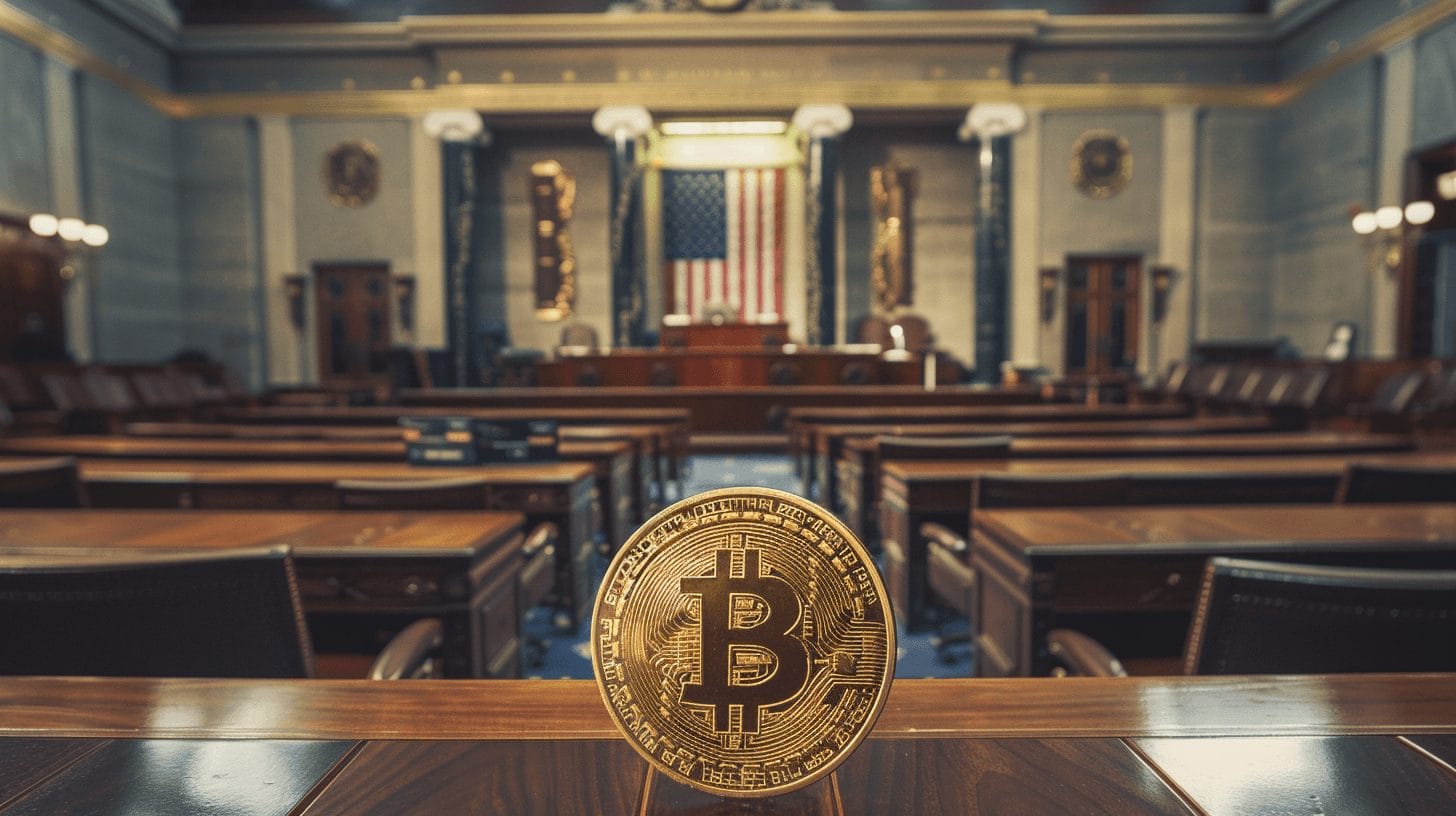
The House Financial Services Committee voted on Thursday to proceed with a resolution that would “reverse” the United States Securities and Exchange Commission’s (SEC) controversial digital asset accounting bulletin, SAB 121.
The resolution, brought forward by representatives Mike Flood (R-NE) and Wiley Nickel (D-NC), was passed by a majority of committee members in hopes of overturning the bulletin. Known as SAB 121, the bulletin would force banks to list custodial cryptocurrencies on their balance sheet, effectively limiting them from participating in the digital asset ecosystem.
SAB 121 Presents “Serious Ramifications” For The Banking Sector
Congressman Flood expressed his disapproval of the SEC’s bulletin, claiming it would have serious ramifications for the banking industry as a whole.
.@SECGov has virtually locked out the most regulated institutions from serving as custodians for digital assets. It’s time to roll back SAB 121 and to stop @GaryGensler’s overreach. pic.twitter.com/n3xWRhPMWq
— Rep. Mike Flood (@USRepMikeFlood) February 29, 2024
“The ramifications of requiring banks to hold these assets on-balance sheet are pretty significant,” he remarked. “If a bank were to custody digital assets according to the parameters of SAB 121, the on-balance sheet treatment would affect their other regulatory obligations like their capital and liquidity requirements. The end result is that banks must choose to either custody digital assets—thus inflating their balance sheet and severely affecting every other line of business or stay out of the market.”
Banks Are Eager To Join Spot Bitcoin ETFs as Custodians
Additionally, Flood took issue with the fact that banks are currently prevented from serving as custodians for the recently SEC-approved spot Bitcoin ETFs under SAB 121.
“That’s a situation where you might want more bank custodians, who are well-regulated experts on custody, on the job,” Flood added. “As it is, there are only four total custodians for those eleven Bitcoin ETFs, and they are all non-banks.”
Not everyone present at the committee meeting was on board with Flood and Wiley’s resolution, however.
Congresswoman Maxine Waters (D-CA) expressed disdain at the committee’s criticism of SAB 121.
“This bulletin is non-binding SEC staff guidance intended to help clarify how a company should account for its customers’ cryptocurrencies,” Waters claimed. “We often hear Republicans and the crypto industry complain about a lack of clarity from the SEC, but ironically, the resolution before us effectively blocks the SEC staff from providing that clarity around crypto.”
Resolution Overturning SAB 121 Moves Ahead
The committee vote comes just weeks after a trade group coalition representing some of the United States’ largest banks implored SEC Chair Gary Gensler to modify the staff accounting bulletin, arguing it raised “important questions about the safety and stability” of the banking ecosystem.
The resolution will now make its way to the floor of the House of Representatives for a full vote.

The House Financial Services Committee voted on Thursday to proceed with a resolution that would “reverse” the United States Securities and Exchange Commission’s (SEC) controversial digital asset accounting bulletin, SAB 121.
The resolution, brought forward by representatives Mike Flood (R-NE) and Wiley Nickel (D-NC), was passed by a majority of committee members in hopes of overturning the bulletin. Known as SAB 121, the bulletin would force banks to list custodial cryptocurrencies on their balance sheet, effectively limiting them from participating in the digital asset ecosystem.
SAB 121 Presents “Serious Ramifications” For The Banking Sector
Congressman Flood expressed his disapproval of the SEC’s bulletin, claiming it would have serious ramifications for the banking industry as a whole.
.@SECGov has virtually locked out the most regulated institutions from serving as custodians for digital assets. It’s time to roll back SAB 121 and to stop @GaryGensler’s overreach. pic.twitter.com/n3xWRhPMWq
— Rep. Mike Flood (@USRepMikeFlood) February 29, 2024
“The ramifications of requiring banks to hold these assets on-balance sheet are pretty significant,” he remarked. “If a bank were to custody digital assets according to the parameters of SAB 121, the on-balance sheet treatment would affect their other regulatory obligations like their capital and liquidity requirements. The end result is that banks must choose to either custody digital assets—thus inflating their balance sheet and severely affecting every other line of business or stay out of the market.”
Banks Are Eager To Join Spot Bitcoin ETFs as Custodians
Additionally, Flood took issue with the fact that banks are currently prevented from serving as custodians for the recently SEC-approved spot Bitcoin ETFs under SAB 121.
“That’s a situation where you might want more bank custodians, who are well-regulated experts on custody, on the job,” Flood added. “As it is, there are only four total custodians for those eleven Bitcoin ETFs, and they are all non-banks.”
Not everyone present at the committee meeting was on board with Flood and Wiley’s resolution, however.
Congresswoman Maxine Waters (D-CA) expressed disdain at the committee’s criticism of SAB 121.
“This bulletin is non-binding SEC staff guidance intended to help clarify how a company should account for its customers’ cryptocurrencies,” Waters claimed. “We often hear Republicans and the crypto industry complain about a lack of clarity from the SEC, but ironically, the resolution before us effectively blocks the SEC staff from providing that clarity around crypto.”
Resolution Overturning SAB 121 Moves Ahead
The committee vote comes just weeks after a trade group coalition representing some of the United States’ largest banks implored SEC Chair Gary Gensler to modify the staff accounting bulletin, arguing it raised “important questions about the safety and stability” of the banking ecosystem.
The resolution will now make its way to the floor of the House of Representatives for a full vote.
